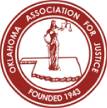
Losing a loved one is always a heart-wrenching experience, but when the death occurs in a nursing home due to negligence or misconduct, it becomes even more tragic. Families trust nursing homes to provide quality care to their elderly relatives and ensure their safety and well-being. Nursing homes should be held accountable for their actions when they fail to fulfill this responsibility.
In this blog post, we will explore the process of suing a nursing home for wrongful death, including the necessary steps to take, the legal elements involved, and the potential damages that can be awarded.
Understanding Wrongful Death Claims
The CDC has reported that about 500,000 older adults are abused or neglected yearly. Before suing a nursing home for wrongful death, it’s essential to understand what constitutes a wrongful death claim.
Wrongful death occurs when another party’s negligence, recklessness, or intentional misconduct causes a person’s death. In nursing homes, wrongful death can result from inadequate care, medical malpractice, physical abuse, or other negligent actions by the staff or administration.
Our Team Is Here To Assist You Every Step Of The Way.
SPEAK TO AN ATTORNEY TODAYEstablishing the Basis for Your Claim
To successfully sue a nursing home for wrongful death, you must establish a strong foundation for your claim. This process typically involves proving the following critical elements, which will form the basis of your case:
Duty of Care
You must show that the nursing home has a legal obligation to provide reasonable care to your loved one. This duty of care is established when a nursing home accepts residents and agrees to look after their well-being, adhering to state and federal regulations and industry standards. Essentially, this means that the nursing home is expected to act in the best interest of your loved one, ensuring that their physical, emotional, and medical needs are met.
Breach of Duty
Once you’ve established that the nursing home had a duty of care towards your loved one, you must prove that they failed to fulfill this duty by providing substandard care or engaging in misconduct. Examples of breach of duty can include inadequate staffing, lack of proper training or supervision, failure to provide necessary medical care, physical or emotional abuse, or neglecting the resident’s basic needs, such as hygiene and nutrition.
Causation
After demonstrating a breach of duty, you must establish that this breach directly resulted in your loved one’s death. This often requires showing a clear and convincing link between the nursing home’s negligence and the harm caused to your loved one. Proving causation may involve presenting expert testimony from medical professionals who can attest to how the nursing home’s actions or inactions led to the resident’s death.
It is important to note that the mere presence of negligence is not enough. You must be able to connect negligence to the fatal outcome.
Damages
Finally, you must establish that the wrongful death resulted in measurable losses for the surviving family members. These losses can include a variety of economic and non-economic damages, such as medical expenses incurred before the death, funeral and burial costs, loss of financial support, and emotional distress experienced by the surviving family members. In some cases, the loss of consortium (companionship) and loss of guidance or nurturing provided by the deceased may also be considered as part of the damages.
Gathering Evidence and Documentation
The World Health Organization reports that six people aged 60 and older experienced some form of abuse. An essential aspect of building a strong wrongful death case is gathering compelling evidence and documentation to support your claim. Comprehensive and persuasive evidence can significantly bolster your case and improve your chances of a successful outcome.
Key Documentation to Strengthen Your Case
Some critical documents to gather in support of your claim include:
- Medical Records: Obtaining your loved one’s complete medical records is vital to establish their health condition before and after entering the nursing home. These records can reveal any changes in their health that may be attributed to the nursing home’s negligence, such as unexplained injuries, worsening of existing conditions, or new health issues.
- Incident Reports: Request any incident reports or internal investigations conducted by the nursing home related to your loved one’s care. These reports can provide crucial information on specific instances of negligence or misconduct and may also reveal patterns of substandard care within the facility.
- Witness Statements: Collecting statements from other residents, staff members, or visitors who may have witnessed or had knowledge of the negligent actions that led to your loved one’s death can be invaluable. These firsthand accounts can corroborate your claim and provide a more detailed picture of the events leading up to the wrongful death.
Leveraging Expert Testimony to Strengthen Your Case
In addition to collecting crucial documents and witness statements, retaining medical and industry experts to review your case is important in building a compelling wrongful death claim. These experts can provide their opinions on the nursing home’s standard of care and how it contributed to the death. Expert testimony can help establish causation and validate the presence of negligence, significantly strengthening your case and improving your chances of receiving the compensation you deserve.
The Importance of Hiring an Experienced Attorney
Given the complexity of wrongful death cases, hiring an experienced attorney specializing in nursing home negligence and wrongful death claims is crucial. Wrongful death lawsuits often involve intricate legal and medical issues, which can be overwhelming for families already dealing with the emotional trauma of losing a loved one. By hiring a skilled lawyer with a deep understanding of the relevant laws, regulations, and industry standards, you can ensure that your case is in capable hands.
A skilled attorney can help you navigate the legal process by providing invaluable guidance and support every step of the way. From filing the initial complaint to negotiating a potential settlement or representing your interests in court, your attorney will be your staunch advocate throughout the litigation process. They will also work diligently to gather the necessary evidence, consult with experts, and build a compelling case to maximize your chances of receiving the compensation you deserve.
Understanding Potential Damages in a Wrongful Death Lawsuit
You may be awarded damages if you successfully prove that the nursing home was responsible for your loved one’s wrongful death. Damages in wrongful death cases can include a range of financial and emotional losses, and they are typically classified into three categories:
Economic Damages
These are quantifiable losses, such as medical expenses, funeral costs, and lost income, which can be calculated and documented. In some cases, economic damages may also include the loss of potential inheritance or the value of services the deceased would have provided, such as household chores or childcare.
Non-Economic Damages
These are intangible losses, such as pain and suffering, loss of companionship, and emotional distress, which are more challenging to quantify. While these damages cannot be precisely measured, they are still essential to a wrongful death claim as they aim to compensate the surviving family members for the emotional impact of their loved one’s death. Courts may consider various factors, such as the duration and severity of the suffering and the relationship between the deceased and the surviving family members, to determine an appropriate amount for non-economic damages.
Punitive Damages
Sometimes, the court may award punitive damages to punish the nursing home for particularly egregious conduct and deter future misconduct. Punitive damages are not meant to compensate the victim’s family but to convey that such behavior is unacceptable and will not be tolerated. It is important to note that punitive damages are only awarded in cases where the nursing home’s actions were especially malicious or reckless, not in every wrongful death lawsuit.
Pursuing a wrongful death lawsuit against a nursing home can be complex and challenging. By hiring an experienced attorney and understanding the potential damages, you can better navigate the legal system and seek justice for your loved one. BDIW Law is here to help.








